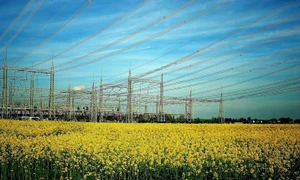According to Al Jazeera, a referendum is expected to be held as early as July 2023, but campaigners say more needs to be done to tackle inequality and injustice.
Termed a “Voice to Parliament”, a “yes” vote in the referendum would constitutionally enshrine an advisory group to government made up of Aboriginal and Torres Strait Islander leaders.
It would not only be the first acknowledgement of Indigenous people in Australia’s constitution but also rectify the ongoing historical exclusion of Indigenous people from parliamentary processes.
![Australia's government says the Voice to parliament is a step towards improving the lives of Indigenous people [File: Steven Saphore/AFP] Australia moves to give Indigenous people a voice to parliament -0](https://cdn-en.daibieunhandan.vn/images/b26c8c54e747d97e23a6427172c31d8aab0e1bb4cf3343147679108069e1df559ed1df9f2edba59fe3ed7d3a620b25e03d455b86397085f7c2779ca9862e901c/Untitled-1665115268119.jpg)
Prime Minister Anthony Albanese released the draft wording of the proposed constitutional change, along with the draft question to be posed to the Australian public, via a referendum at this year’s Garma Festival, where politicians and Indigenous leaders usually meet.
The festival — held in the remote Indigenous region of Arnhem Land in far north Australia — is often used as a site for serving governments to make announcements on policy.
Minister for Indigenous Affairs Linda Burney has since announced a “working group” made up of prominent Indigenous leaders to take the referendum process forward.
In a statement to Al Jazeera, Burney described the Voice to Parliament as “a once in a generation opportunity to make the much-needed structural changes that will lead to improvements in the lives of Aboriginal and Torres Strait Islander people.”
“A Voice to Parliament is about improving the lives of Aboriginal and Torres Strait Islander people across the country,” she said. “It’s about making sure First Nations people have a say on the issues and policies that affect them and that future governments make better and more informed policies that will make a difference.”
Indigenous Australians experience vast inequalities compared to the non-Indigenous population, a result of ongoing colonisation and marginalisation.
Despite making up less than 3 percent of the country’s population, Indigenous Australians make up more than a quarter of its prison population, according to official data, with many jailed for minor crimes. About a third of Indigenous Australians live below the poverty line.
“There is a long history in Australia of failed programmes and policies when it comes to Indigenous affairs,” Burney continued. “A Voice to Parliament is about drawing a line on the failed policies and programmes of the past and doing things differently.”
Need for truth and justice
Advocacy for a Voice to Parliament began when former-Prime Minister Julia Gillard established an expert panel in 2010 with the aim of furthering recognition of Indigenous Australians in the country’s constitution.
In 2017, after consultation with a range of Indigenous community members and leaders, the Uluru Statement was launched, detailing the proposed Voice along with calls for truth-telling and treaty. But the right-leaning Scott Morrison, who was prime minister before Albanese won May’s election, refused to support the proposal.
Still, not all the Indigenous Senators in parliament agree a constitutionally enshrined “Voice” is the right path forward for Indigenous Australians.
Lidia Thorpe — who represents the left-leaning Greens’ Party — told Al Jazeera that instead of a Voice to Parliament, Australia needed to prioritise a process that would ensure more people knew about its past and the treatment of Aboriginal people.
“We need a national Truth and Justice Commission because this nation doesn’t know its own history,” Thorpe told Al Jazeera.
“A national Truth Telling process will empower people to make informed decisions in Treaty negotiations and constitutional recognition, because constitutional recognition can be decided through a Treaty process.”
Unlike countries such as New Zealand and Canada, Australia has never had a successful treaty process with Indigenous people.
Instead, the continent was colonised by the British under the concept of terra nullius, a Latin legal term for “land belonging to no-one”, which was embedded in Australian law and only overturned in 1992.
The recent death of Queen Elizabeth II, the British monarch who was also Australia’s head of state, has reignited discussions of sovereignty.
“Treaty is an expression of sovereignty,” Thorpe told Al Jazeera. “We also need to remove the Crown, to create a Treaty Republic. It will bring people together to figure out how we can live together, peacefully.”
Also opposed to the Voice to Parliament is Indigenous Senator Jacinta Nampijinpa Price, who represents the conservative Country Liberal Party.
In her maiden speech to parliament, Price claimed the current Labor government’s agenda was nothing more than “virtue signalling” and the Voice to Parliament a “quick fix.”
“[The Voice] lacks detail and it lacks substance and it lacks the opportunity to allow for marginalised Aboriginal Australians to empower themselves,” Price told Al Jazeera.
“It can’t be guaranteed that this suggestion is going to work in any way to the betterment of marginalised Indigenous Australians. I think [the Government] need to prove that it can actually work first before there is any suggestion of going anywhere near the Constitution.”
Price also said members of Burney’s “working group” were “detached” from grassroots Aboriginal communities and unable to represent all Indigenous people.
“They certainly don’t represent my people and probably [don’t represent] a whole lot of Aboriginal Australians,” she said.
Instead, Price said family violence in Indigenous communities should be the priority.
“The family and domestic violence issue should be the number one issue that we should be looking to tackle,” she told Al Jazeera.
Advice not power
Non-Indigenous ministers from previous governments have also created confusion about what exactly the Voice entails.
When first announced in 2017, then-Prime Minister Malcolm Turnbull erroneously described the proposal as a “third chamber” of government, a statement he has since retracted.
More recently, Liberal opposition leader Peter Dutton suggested the Voice will involve veto powers over issues such as mining concessions.
Cheryl Saunders, founding Director of the Centre for Comparative Constitutional Studies at Melbourne University Law School, says that is entirely wrong.
Protesters walk with a banner in the colours of the Aboriginal flag reading 'Aboriginal rights now'
Indigenous people make up only 3 percent of the Australian population but make up a quarter of the prison population [File: Muhammad Farooq/AFP]
The Voice “won’t have power, it will be providing advice,” she told Al Jazeera, adding it was “not a veto power at all.”
“As a group of Indigenous people [the Voice] will have a view on matters relating specifically to Indigenous people and it will share that view with the government and parliament,” Saunders said.
Under Australian law, the nation’s constitution can only be amended by public vote and if successful, the referendum would lead to a constitutional amendment that would ensure such a “Voice” would remain embedded in the parliamentary process in perpetuity.
Historically, the Australian public have proved shy of constitutional change; out of 44 proposals put forward in 19 referendums, only eight have been passed by popular vote.
But the most successful referendum was on Indigenous rights when Australians in 1967 voted overwhelmingly in support of a constitutional amendment to count Indigenous people in the census and provide the federal government and not just state administrations with the power to make laws for Indigenous people.
While the detail of the referendum was often less understood than the popular sentiment of “Vote Yes”, the referendum outcome of 90.77 percent in favour of the changes suggested huge support to improve the lives of Indigenous Australians.
“1967 was different because it didn’t come from the government initially,” Saunders explained. “It came from a groundswell of pressure by Indigenous people talking to non-Indigenous people and getting ordinary people interested. And there is a sense in which this [current referendum proposal] is exactly the same.”
Saunders acknowledges there are risks involved in amending the constitution to enshrine an Indigenous Voice to Parliament.
“I think that of course it is very important that the Voice itself work effectively but I think at equal risk is that the government and parliament won’t pay it adequate attention,” she said.
“I think once the amendment is passed and the legislation is enacted I think the really hard work of implementation begins. And that’s true of any constitutional change — you can’t just change the words and then assume everything is going to be fine.”
While the government has not yet set a date for the referendum, Albanese recently committed to holding it between July 2023 and June 2024.
With a recent poll demonstrating 64 percent of Australians support an Indigenous Voice to Parliament, Indigenous Australians may finally be recognised in the constitution, more than 200 years after the country was colonised.























